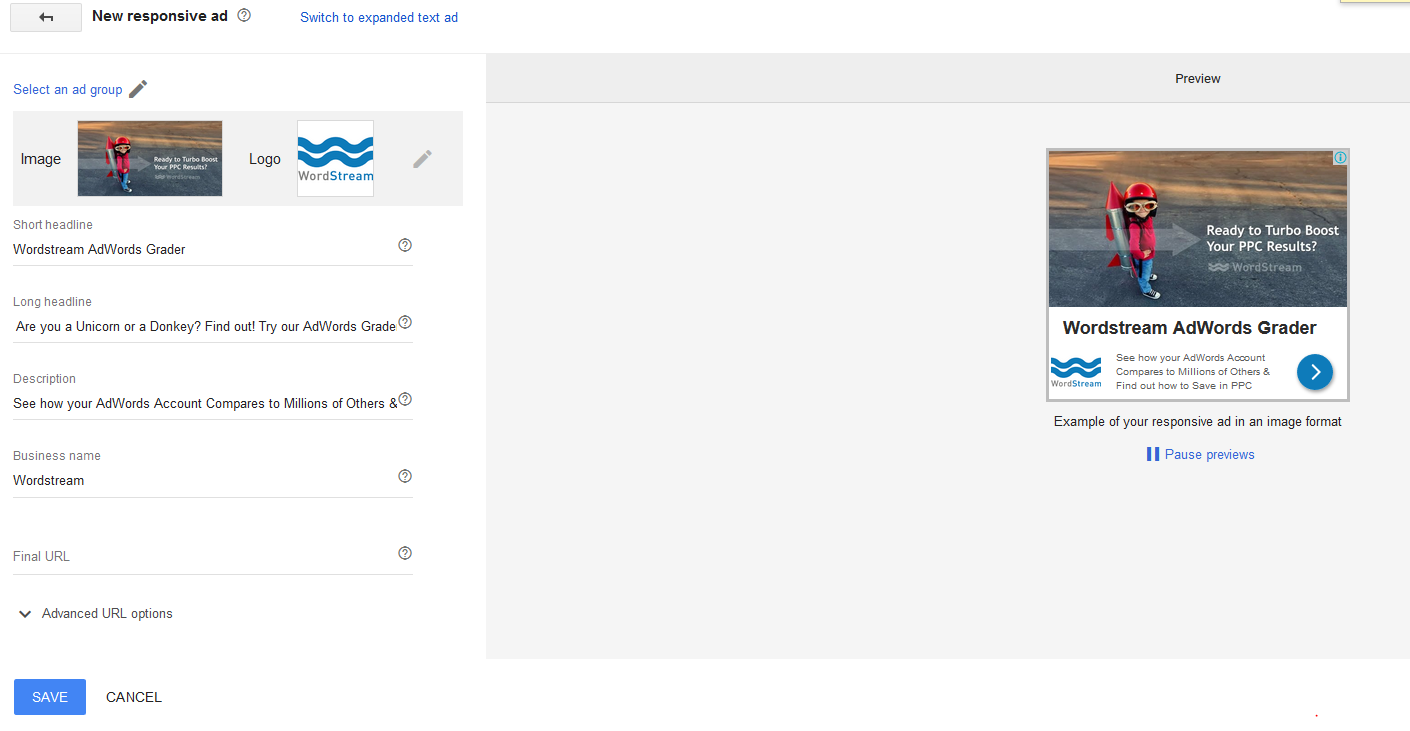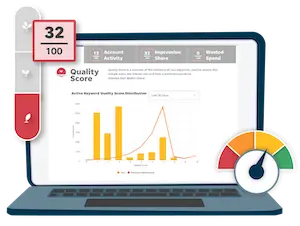
Yesterday, Google released Expanded Text Ads for all advertisers. But expanded text ads aren’t the only new ad format they released. Google also released a new, larger Responsive Ad format for GDN campaigns. The news comes as a relief to many display advertisers, particularly since Google announced it would no longer support Flash ads by January 2017.
The new Responsive GDN ads should be considered an attractive alternative to text ads for the display network with the ability to reformat to fit different ad sizes and placements. As Google puts it, “We built responsive ads for display to help your ads adapt to the increasingly diverse mix of content types and screen sizes.
The responsive ads also allow for advertisers to provide an image and logo that will appear in rich media ads and native ad formats. Google had previously automatically selected an image from a client’s website or Google+ account to populate richer text ads on the display network, which sometime produced less than ideal ads.
The new responsive ads allow for considerably more control of a brand’s messaging and considerably more room for content. Advertisers can also select and upload an image, a logo, and an advertiser name to have complete control over their branding.
✴️ S t r e t c h your budget with our free guide: ✴️ Hacking Google Ads: The Trick That Could Save You Thousands >>
Responsive Display Ad Specs
The new responsive ad format also features a short 25-character headline and a longer 90-character headline that will display when size allows. A 90-character description allows brands to control ad messaging. Counting all these fields, the new responsive display ads can include up to 205 characters of text and images, meaning they’re even larger than expanded text ads and more than twice as large as the old text ads appearing on the Google Display Network!
How to Create Responsive Display Ads
These ads can be created directly in the AdWords interface, by selecting the “+Ad” button and then selecting “Responsive Ads” from the drop down.
From there, you’ll be prompted to specify your ad’s headlines, description, and advertiser name. You can upload your own image for the ads or Google will provide suggestions from your website. You can also preview how your ad may appear on the display network in different ad sizes and formats.
Google’s new responsive display ads should be a powerful tool for SMB advertisers who are looking to create compelling ads on the Google Display network without a graphic designer to create image ads. With the combined reach of image and text ads on the display network, these responsive ads will certainly be a game changer for many advertisers!












Comments
Please read our Comment Policy before commenting.